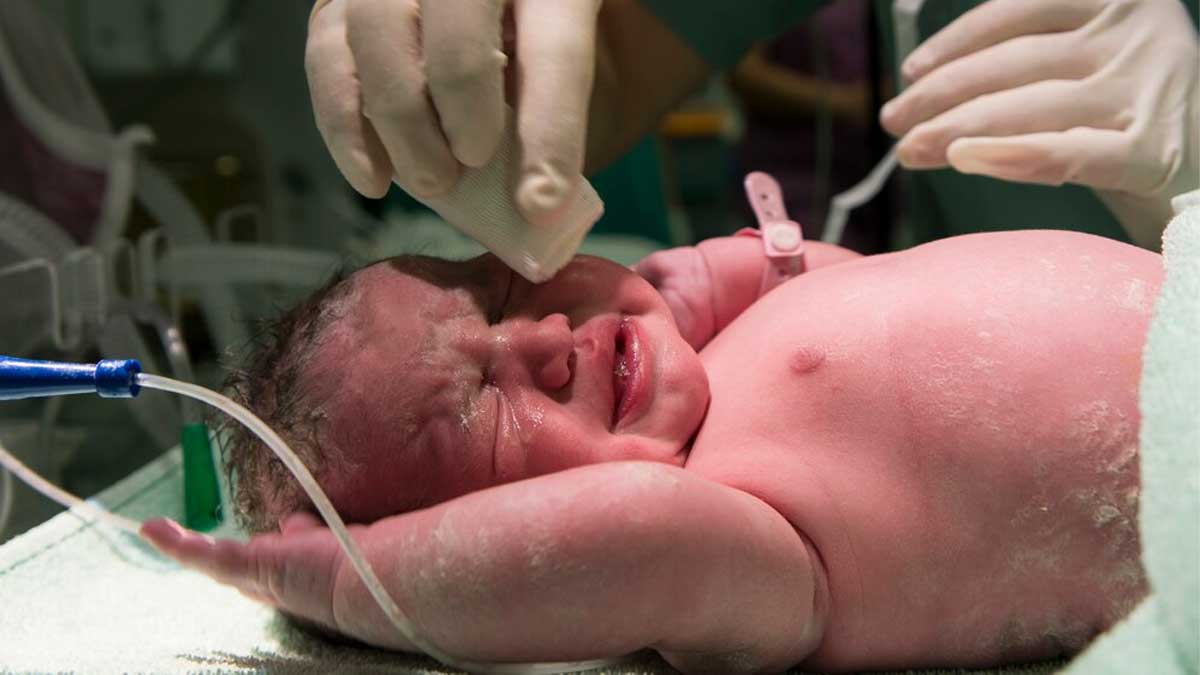
We all know about the nine-month delivery period, but what happens when a baby is born before that? If a baby is born before completing 37 weeks of gestation, we call it premature birth. A premature baby may develop various complications, hence it is important to understand it in detail for the healthy upbringing of the child. We spoke to our expert Dr Adarsh A M, Consultant Paediatrician and Neonatologist, SSM Hospital, Hassan, Karnataka, who explained premature and full-term birth and things you should know.
Table of Content:-

“Babies born at or above 37 weeks are considered full-term. If a baby arrives before 28 weeks, they are classified as extremely premature. Those born between 28 to 34 weeks are very or moderately premature, while babies born between 34 - 37 weeks are considered late preterm”, informed Dr Adarsh.
Various factors, either related to the mother's health during pregnancy or issues affecting the baby, can lead to premature birth. These factors might include conditions like pregnancy-related hypertension, uncontrolled diabetes, infections, or foetal distress causing reduced oxygen supply.
According to the World Health Organization, in 2020, an estimated 13.4 million infants were delivered prematurely. The primary cause of death for children under five is preterm birth complications, which accounted for around 900,000 deaths in 2019.
Also Read: Managing Pregnancy Cravings Mindfully: Expert Lists Ways To Tackle It
Impact Of Premature Birth On Babies
Premature babies face challenges due to their underdeveloped organs. Dr Adarsh listed the impact of premature birth on babies as follows:

- Their lungs might not be fully formed, leading to a condition known as respiratory distress syndrome. This occurs because their lungs lack surfactant, a substance aiding in lung expansion, usually produced after 32 to 34 weeks of pregnancy. To help these babies breathe properly, they require respiratory support and often need exogenous surfactant.
- Additionally, their immature skin makes them prone to losing body temperature and fluids rapidly.
- They struggle to maintain stable blood sugar levels and are highly susceptible to infections due to sensitive skin.
- Immature kidneys affect their ability to regulate salt and water effectively.
- These babies also have immature digestive systems, making it challenging for them to process regular milk.
- They are given parenteral nutrition through intravenous means until they can tolerate their mother's milk.
- On the other hand, full-term babies, those born after completing 37 weeks of gestation, generally have more developed organs and are better equipped to face the outside world.
“Their lungs are fully formed and the skin is more mature, providing better protection against infections, and they have a higher ability to regulate body temperature and blood sugar levels. Their digestive systems are more prepared to handle regular milk intake compared to premature babies”, informed Dr Adarsh.
Also Read: Pre-Pregnancy Health Tests: Expert Lists Tests You Should Undergo Before Planning Pregnancy
Challenges and Care for Preterm Babies

Apart from these issues, premature babies might experience apnoea (pauses in breathing) due to their immature brains and can suffer brain bleeds. However, medical advancements have introduced family-centred care, involving parents in the newborn's treatment.
“Mothers are encouraged to visit and interact with their babies in the NICU (Neonatal Intensive Care Unit) as soon as they can move around. This involvement aids in the baby's recovery and alleviates parental anxiety. Educated parents are better equipped to understand and handle the challenges their preterm babies face”, added Dr Adarsh.
Support and Treatment

Caring for preterm babies requires specialised centres and can be time-consuming. Babies born at 28 weeks, for instance, may spend 6-8 weeks in the NICU before being discharged to their mothers.
“Parents often face anxiety after delivery, but dedicated counselling teams and advancements in medical technology help ease these concerns. Science has made tremendous strides in caring for even the tiniest babies, born as light as 500-600 grams”, emphasised Dr Adarsh.
Bottomline
Dr Adarsh concluded, “Understanding premature and full-term births helps us appreciate the challenges babies and their families endure. While premature babies face numerous challenges due to their underdeveloped organs, full-term babies are better equipped to handle the transition from the womb to the outside world. Their more developed organs contribute to a smoother adaptation to life outside the womb, reducing the risks associated with premature birth.”
[Disclaimer: This article contains information provided by a registered healthcare professional and is for informational purposes only. Hence, we advise you to consult your expert for necessary medical treatment.]
Also watch this video
How we keep this article up to date:
We work with experts and keep a close eye on the latest in health and wellness. Whenever there is a new research or helpful information, we update our articles with accurate and useful advice.
Current Version
